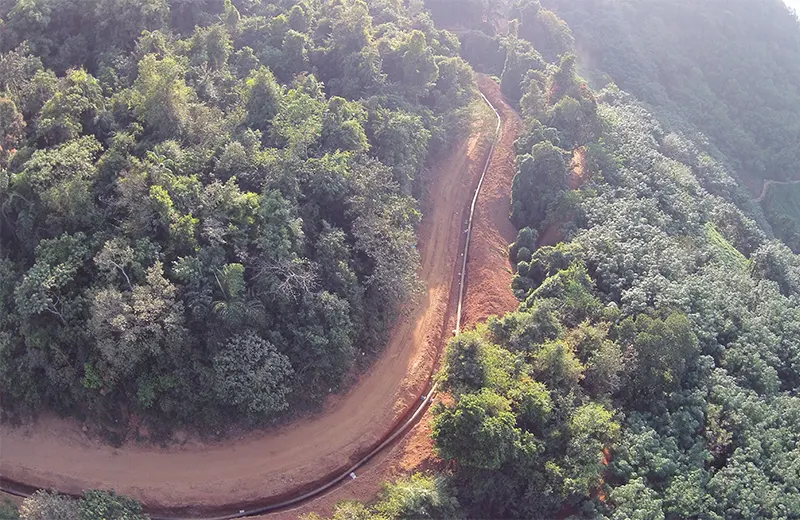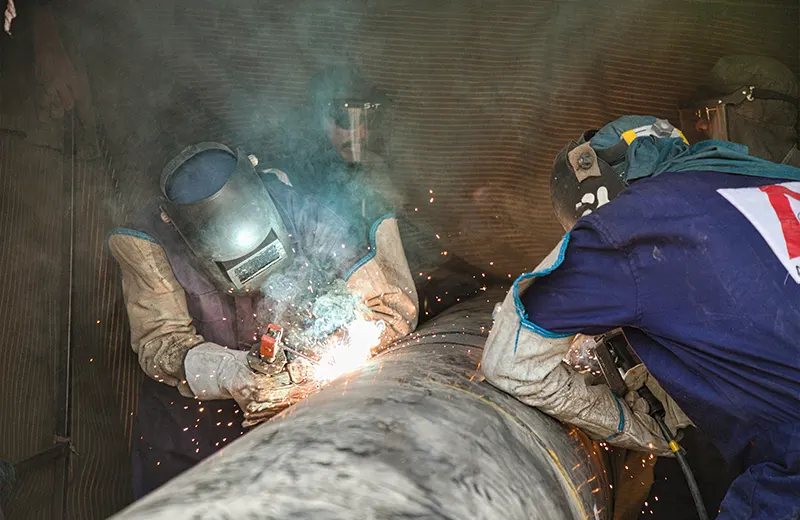Menu
Menu
Cross-country pipelines are long-distance pipelines that transport oil, natural gas, or other fluids over land, often across large distances and sometimes across multiple countries. These pipelines are typically used to transport oil or gas from production sites, such as oil fields or gas wells, to processing facilities, storage facilities, or to end-users like power plants or industrial facilities.
Cross-country pipelines can vary in size, but they are often several inches to several feet in diameter and can span hundreds or even thousands of miles. The pipelines are usually buried underground to protect them from damage and to minimize the impact on the surrounding environment.
The construction and operation of cross-country pipelines require significant planning, engineering, and environmental considerations to ensure their safety and minimize their impact on the surrounding areas. Maintenance and monitoring of these pipelines are also critical to prevent leaks, corrosion, and other potential issues that can cause safety hazards or environmental damage.


Cross-country pipelines can vary in size, but they are often several inches to several feet in diameter and can span hundreds or even thousands of miles. The pipelines are usually buried underground to protect them from damage and to minimize the impact on the surrounding environment.
The construction and operation of cross-country pipelines require significant planning, engineering, and environmental considerations to ensure their safety and minimize their impact on the surrounding areas. Maintenance and monitoring of these pipelines are also critical to prevent leaks, corrosion, and other potential issues that can cause safety hazards or environmental damage.
We are always available to respond your messages. Just drop a line or call us.
Cross country pipelines are an important mode of transportation for oil and gas, offering a range of benefits over other transportation methods such as trucking, rail, or shipping. Here are some of the key benefits of cross country pipelines:
Cross country pipelines are often the most cost-effective mode of transportation for oil and gas, as they can transport large volumes of product over long distances with minimal labor costs.
Cross country pipelines offer a reliable mode of transportation, as they are not subject to traffic delays or weather-related disruptions that can affect other transportation modes.
Cross country pipelines are one of the safest modes of transportation for oil and gas, as they are designed to meet stringent safety standards and are subject to regular inspection and maintenance.
Cross country pipelines can have lower greenhouse gas emissions and environmental impact than other transportation modes, as they require less energy to transport a given volume of product and can reduce the risk of spills or accidents associated with other transportation methods.
Cross country pipelines can help to increase energy security by providing a reliable and efficient means of transporting oil and gas across long distances, reducing dependence on foreign sources of energy.

Ace Pipeline Contracts was established in 1989 and has had its roots in Mumbai. We have grown over the years in our ability to execute diverse contracts across the nation.